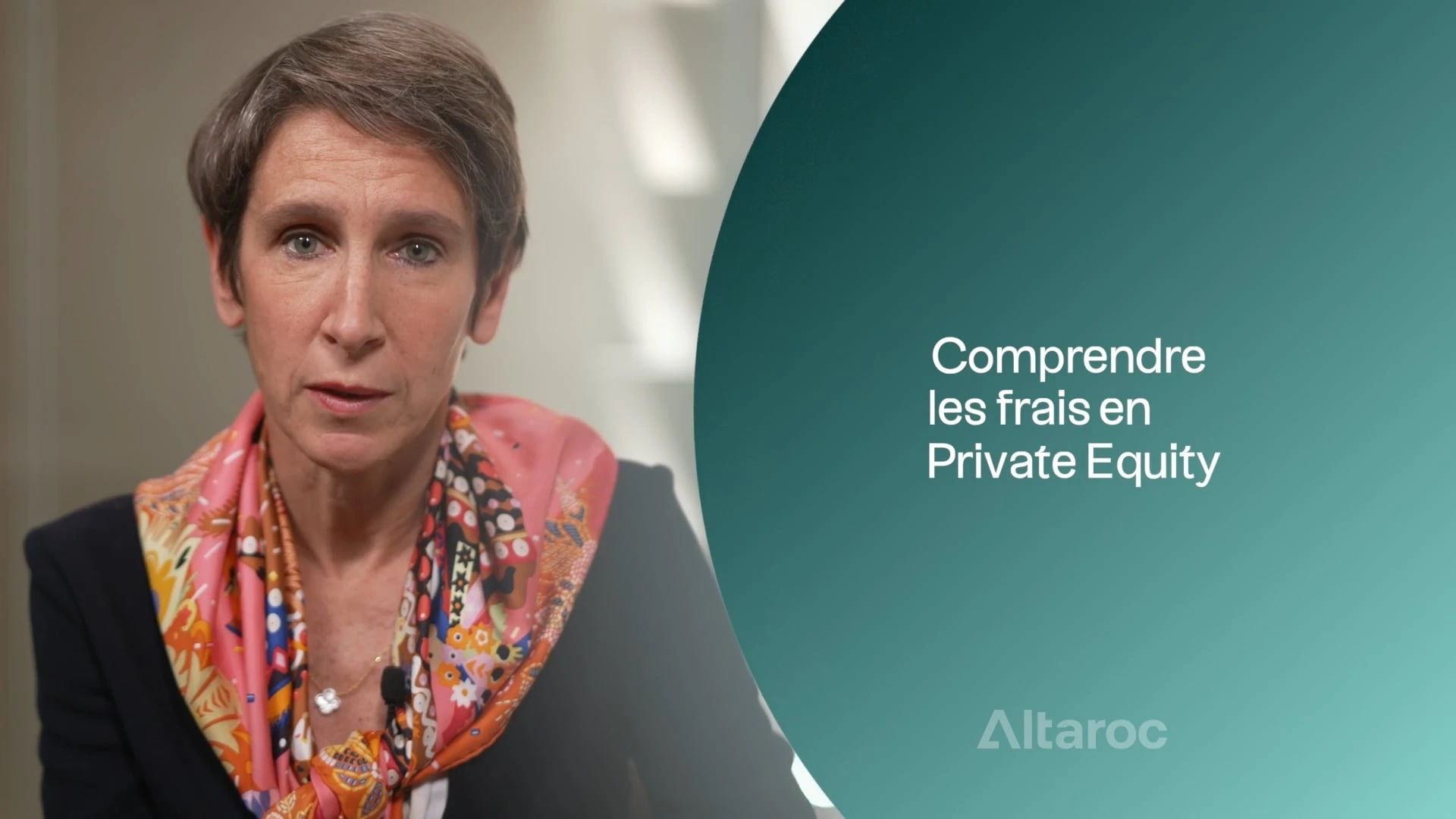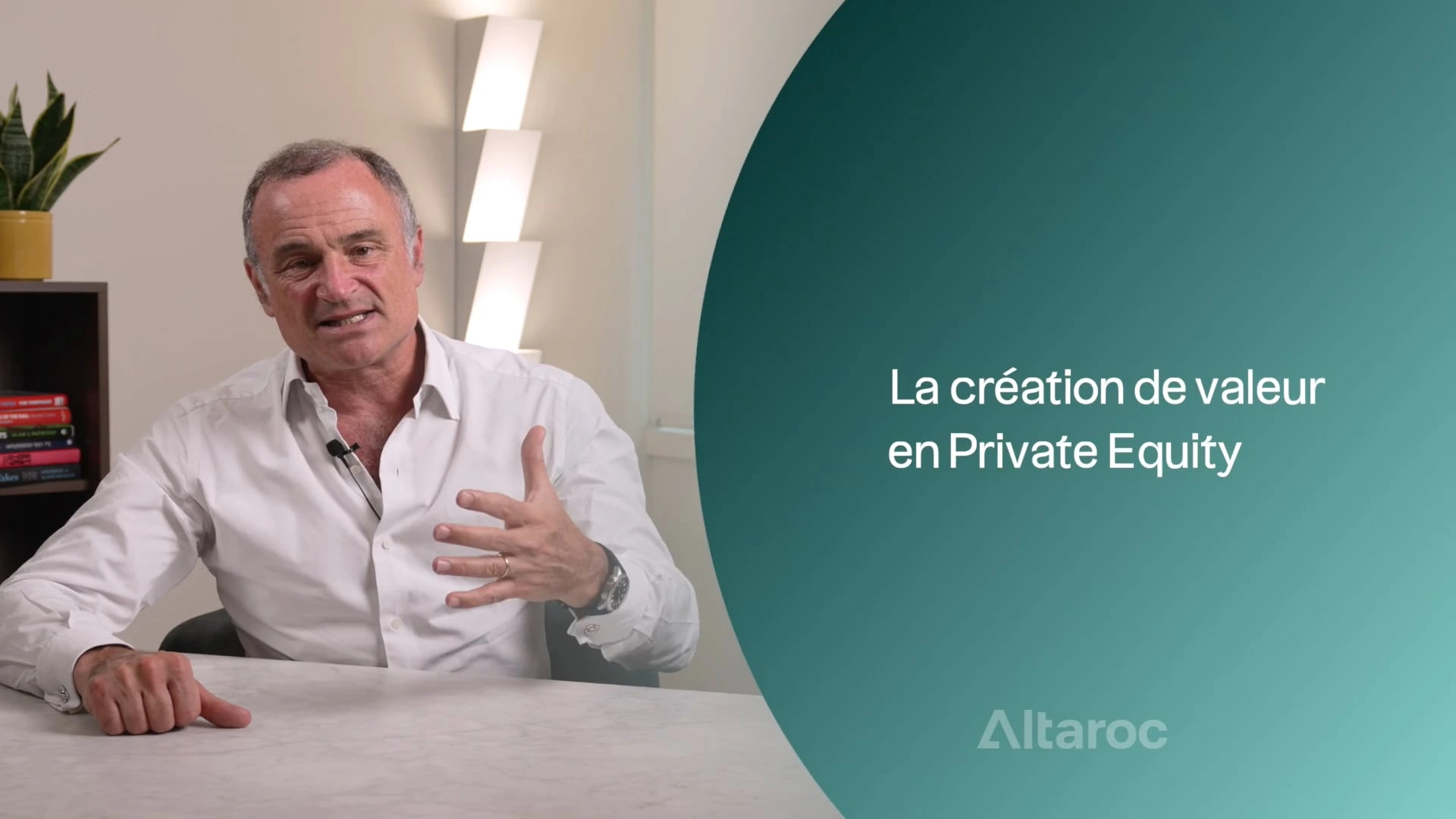A definition and an investment model
Private equity refers to investments in unlisted companies. Unlike shares in listed companies, which can be bought and sold on the financial markets on a daily basis, private equity involves taking direct stakes in private companies with a medium- to long-term investment horizon. The aim is to support their development, improve their performance or facilitate their transfer.
To finance these investments, private equity funds raise capital from institutional investors (pension funds, insurance companies) and, increasingly, from private individuals. They then implement strategies tailored to each individual company, to unlock its full growth potential.
A driver of value creation
Private equity plays a crucial role in the economy, financing companies at different stages of their development. Whether they are innovative start-ups raising funds, SMEs looking to accelerate their international expansion, or large companies in transition, private equity provides essential financial and strategic support to stimulate their growth.
.webp)
This funding has created or safeguarded hundreds of thousands of jobs, and supported sectors as varied as technology, healthcare, energy and financial services.

Higher returns than public markets
Historically, private equity funds have demonstrated an ability to generate higher returns than listed equities. According to Pitchbook data, global private equity funds have posted an average internal rate of return of 15% over a 15-year period, compared with around 8% for traditional stock market indices.

This performance can be explained by several factors:
- Active involvement of the funds in the management of the companies financed.
- Private management enables long-term strategic decisions to be taken, away from the pressure of public procurement.
- Better risk distribution through portfolio diversification.
Why are private investors interested in private equity?
Traditionally reserved for institutional investors, private equity is gradually opening up to individuals, thanks to specially adapted investment vehicles such as ELTIF funds (European Long-Term Investment Fund). These funds, regulated by the European Union, give private investors access to private equity with a lower entry ticket and tax advantages.
This opening is in response to growing demand from investors looking for alternatives to traditional investments, particularly in a context of low bond yields and increased stock market volatility.
A long-term investment
Private equity is a long-term investment. Investors can expect to tie up their capital over a period of 5 to 10 years, until the companies financed reach their full value-creation potential.
However, this long-term perspective is offset by the possibility of higher returns (to be seen with compliance). For investors ready to commit, private equity offers a unique opportunity to participate actively in the development of the real economy, while benefiting from superior growth potential.
In short, private equity is no longer the preserve of the wealthy. With adapted vehicles and increased regulation, it is becoming an asset class in its own right for investors wishing to diversify their portfolios and seek higher returns. The question is no longer "why invest in private equity", but "why not?





.png)
%2520(1).webp)




.webp)





.jpeg)
.jpeg)
.jpeg)
.jpeg)



--Comprendre-l%25E2%2580%2599appe%25CC%2581tence-des-investisseurs-1.webp)
%2520-%2520les%2520avantages%2520a%25CC%2580%2520investir%25202.webp)
%2520-%2520les%2520avantages%2520a%25CC%2580%2520investir%25201.webp)
%2520-%2520%25C2%25AB%2520c%25E2%2580%2599est%2520toujours%2520le%2520bon%2520moment%2520pour%2520investir%2520en%2520Private%2520Equity%2520%25C2%25BB%25202.webp)
%2520-%2520%25C2%25AB%2520c%25E2%2580%2599est%2520toujours%2520le%2520bon%2520moment%2520pour%2520investir%2520en%2520Private%2520Equity%2520%25C2%25BB%25201.webp)
%2520-%2520Comprendre%2520l%25E2%2580%2599appe%25CC%2581tence%25202.webp)















